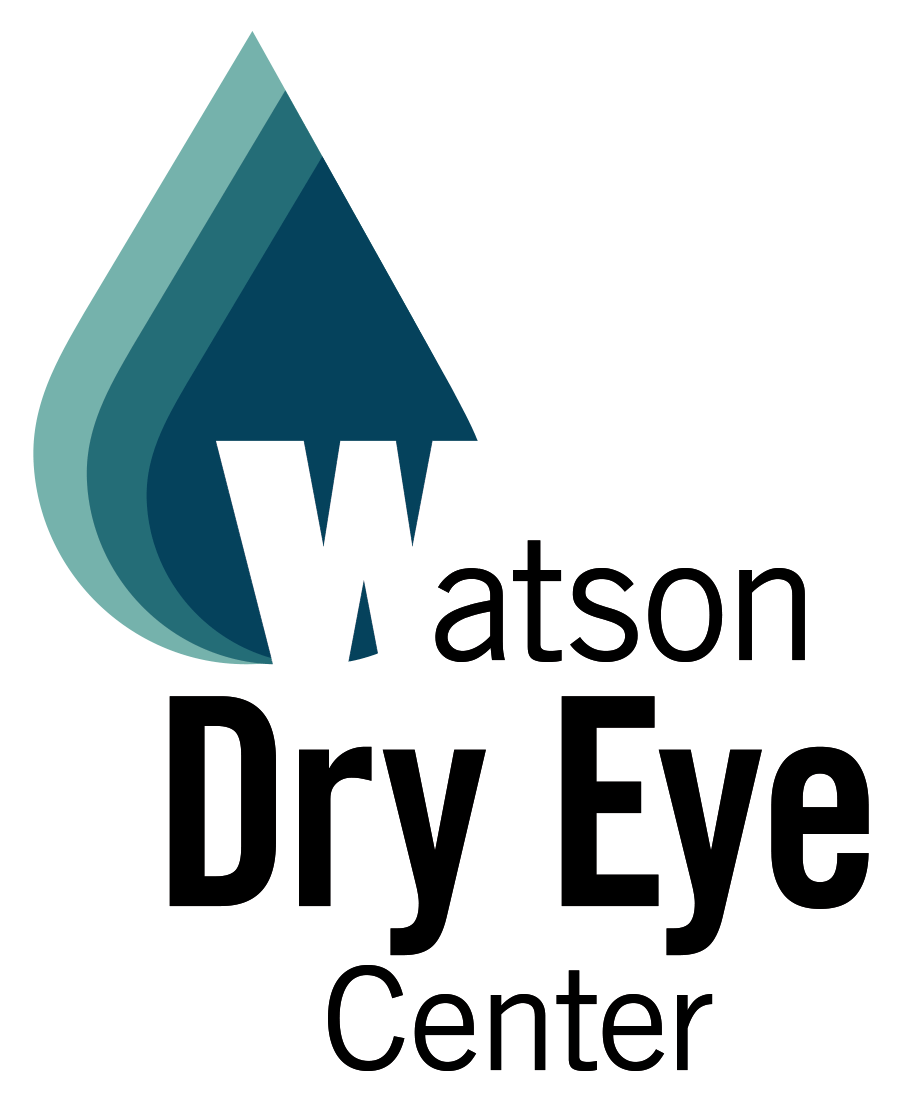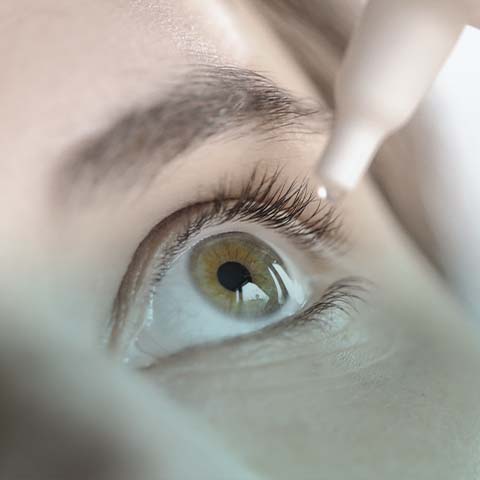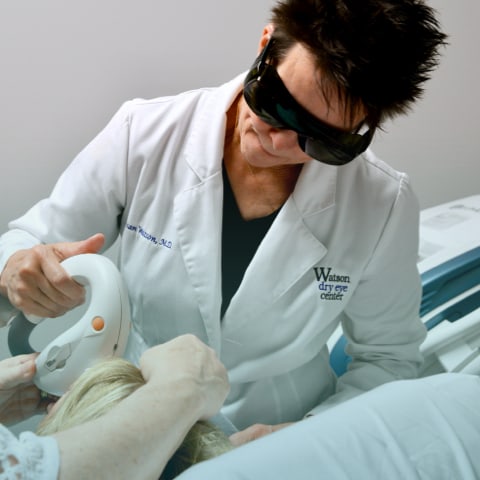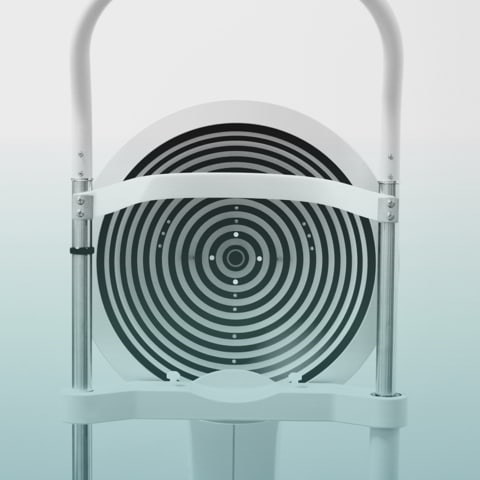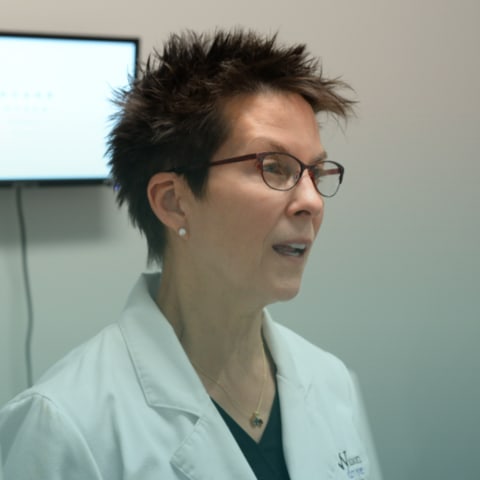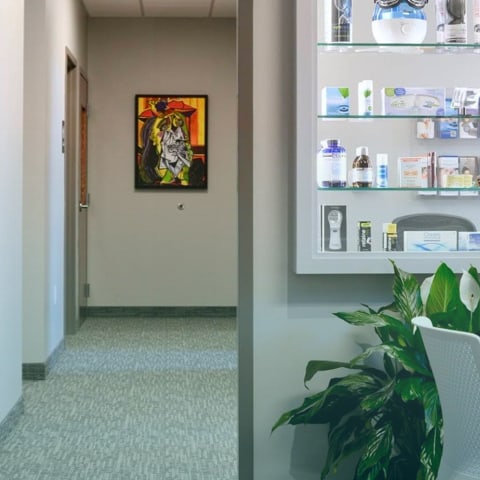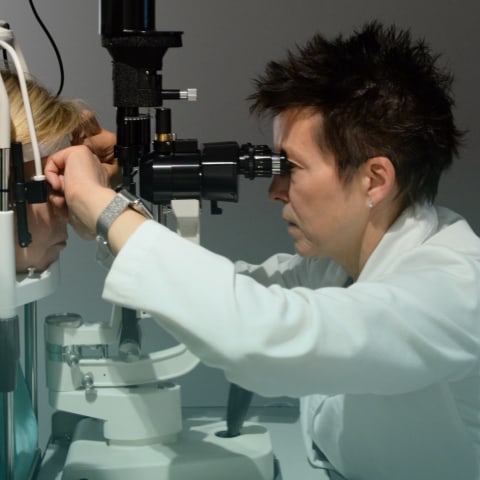
Get Proactive About Rosacea
Rosacea is a facial skin condition that causes your cheeks, nose, and other facial areas to appear flushed with blood like you’re constantly blushing. People with rosacea can develop ocular rosacea, which can cause redness, swelling, and dryness in your eyes and eyelids.
Our team at Watson Dry Eye Center has pursued innovative solutions to treat rosacea and prevent ocular rosacea from causing you eye pain and discomfort—before it develops. Visit us and we can treat or get ahead of your condition before it causes more discomfort.

Symptoms of Ocular Rosacea
Skin rosacea presents as distinct, persistent blushing along with visible veins and a slight burning sensation in the face. People with skin rosacea are most likely to develop ocular rosacea, though ocular rosacea can develop without skin rosacea. Ocular rosacea symptoms include:
- Red eyes
- Itchy eyes
- Dry eyes
- Blurry vision
- Light sensitivity
- Swollen eyelids
Ocular rosacea can also cause recurrent eye inflammation such as conjunctivitis and blepharitis.



Who Can Get Rosacea?
Rosacea affects around 16 million Americans. Anybody can develop rosacea regardless of age, gender, or race. However some groups of people are more likely to develop the condition than others, including:
- Women between the ages of 30–60
- Fair-skinned people with blonde hair & blue eyes
- People with a family history of rosacea

How Do You Diagnose Ocular Rosacea?
The symptoms of ocular rosacea are clear, and diagnosis may be straightforward if a patient already has skin rosacea. However, if they develop ocular rosacea before skin rosacea, it’s important to properly diagnose the condition to get the right treatment.
To diagnose ocular rosacea, our team at Watson Dry Eye Center:
- Analyzes your tear production and quality
- Examines images of your eye glands
Once our team properly diagnoses your condition and its cause, we’ll develop a comprehensive treatment plan that aligns with your needs.

Rosacea Treatment at Watson Dry Eye Center
We treat skin rosacea and ocular rosacea with the same goal of relieving irritation, swelling, and dryness. However, having specific treatments for each condition ensures the highest chance of effective, successful outcomes.
Prescription Eye Drops
Since rosacea can create or worsen symptoms of dry eye disease, your doctor may prescribe eye drops to relieve itchiness and irritation.
Intense Pulsed Light Therapy
Intense Pulsed Light (IPL) therapy is a dry eye treatment we can also use to manage rosacea. IPL uses a small pulses of light on the area below your eyes to reduce inflammation and relieve blockages in your meibomian glands to create healthier tears.
IPL also constricts blood vessels just below the skin surface, which can help manage rosacea and prevent skin rosacea from developing into ocular rosacea.
Visit Us
Learn more about how our team at Watson Dry Eye Center can help you find relief from skin and ocular rosacea. Schedule an appointment with us today.
Our Location
Watson Dry Eye Center is located in Raleigh, right on the corner of Forest Pines Drive and Common Oaks Drive. There’s lots of parking available right in the lot right in front of our practice.
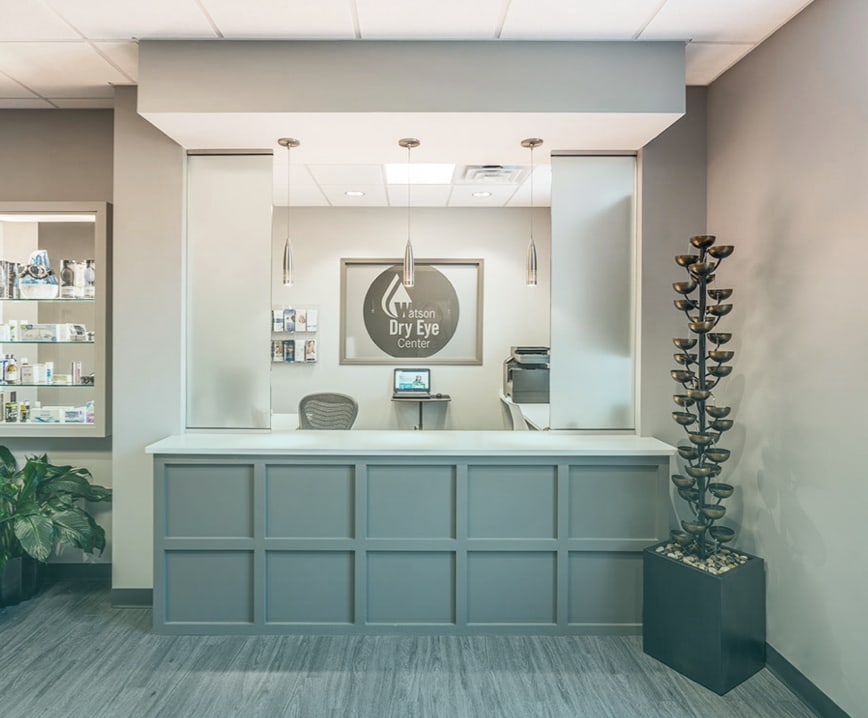
Our Address
- Suite 120
11081 Forest Pines Dr. - Raleigh, NC 27614
Contact Us
- Phone: 252.231.0424
- Email: [email protected]
Clinic Hours
- Monday: 8:00 AM – 6:00 PM
- Tuesday: 8:00 AM – 6:00 PM
- Wednesday: 8:00 AM – 6:00 PM
- Thursday: 8:00 AM – 6:00 PM
- Friday: Closed
- Saturday: Closed
- Sunday: Closed



Help Your Teen See & Be Seen
(Comfortably)


Our teenagers are spending more time every day on their screens. Dry eye symptoms can be exacerbated by excessive screen time which is becoming increasingly common among teenagers and young adults.
Your teen doesn’t have to struggle with dry eye symptoms. At Watson Dry Eye Center, we have an incredible team that specializes in dry eye treatment and management.
Their education and social life are the center of their world and dependent on clear, comfortable vision. Allow them to focus on it with dry eye treatment.
Get ahead of dry eye by booking an appointment with our team.

See Our Google Reviews

Our Blog
Do Your Blinking Exercises
Blinking, Dry Eye DiseaseDid you know you can do blinking exercises to help prevent dry eyes? Yes, even your eyelids need exercising! Your eyelid glands are crucial to keeping your eyes well-lubricated with the proper tear film. Keeping them fit and healthy means working them regularly and properly to avoid them drying out. Why Are Blinking Exercises Important? […]
Telemedicine for Dry Eyes
Dry Eye Disease, TelemedicineWe are proud to offer telemedicine services for our patients at Watson Dry Eye Center in Raleigh, NC. Convenient, affordable, and secure, it allows patients to connect with us more easily and safely. While Telemedicine may not be appropriate for all services, we recommend it as an alternative to in-office exams when seeking non-emergent eye care. Pros […]
How to Prevent Dry Eyes in Teenagers
Blinking, Dry Eye Disease, Screen Time, TeenagersIs your teenager suffering from dry eyes? You are probably spending significantly more time with your teenagers right now, so you may notice a few things: Are they glassy-eyed? Well, of course they are. They’re bored. See them rubbing their eyes? Sure. It’s Spring. They have allergies. Are their eyes red? Yep, they’ve been video gaming 4 […]
Do Your Blinking Exercises
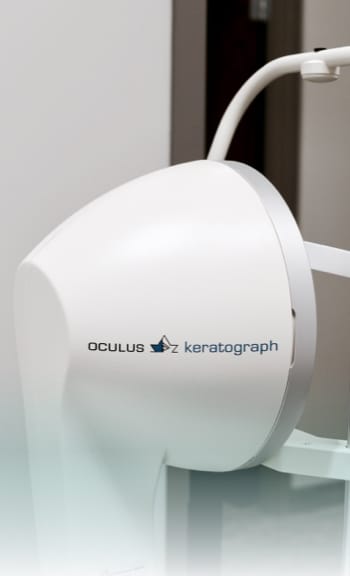
Did you know you can do blinking exercises to help prevent dry eyes? Yes, even your eyelids need exercising! Your eyelid glands are crucial to keeping your eyes well-lubricated with the proper tear film. Keeping them fit and healthy means working them regularly and properly to avoid them drying out. Why Are Blinking Exercises Important? […]
Telemedicine for Dry Eyes
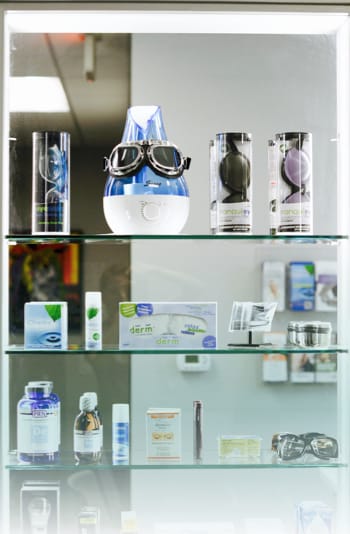
We are proud to offer telemedicine services for our patients at Watson Dry Eye Center in Raleigh, NC. Convenient, affordable, and secure, it allows patients to connect with us more easily and safely. While Telemedicine may not be appropriate for all services, we recommend it as an alternative to in-office exams when seeking non-emergent eye care. Pros […]
How to Prevent Dry Eyes in Teenagers
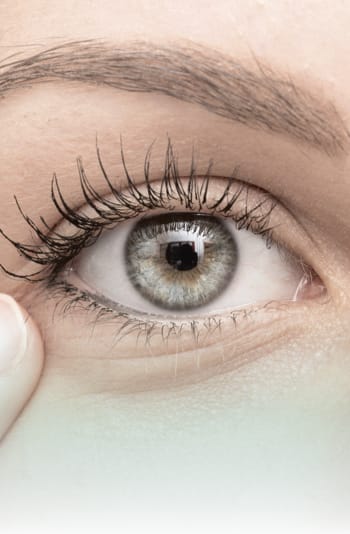
Is your teenager suffering from dry eyes? You are probably spending significantly more time with your teenagers right now, so you may notice a few things: Are they glassy-eyed? Well, of course they are. They’re bored. See them rubbing their eyes? Sure. It’s Spring. They have allergies. Are their eyes red? Yep, they’ve been video gaming 4 […]
